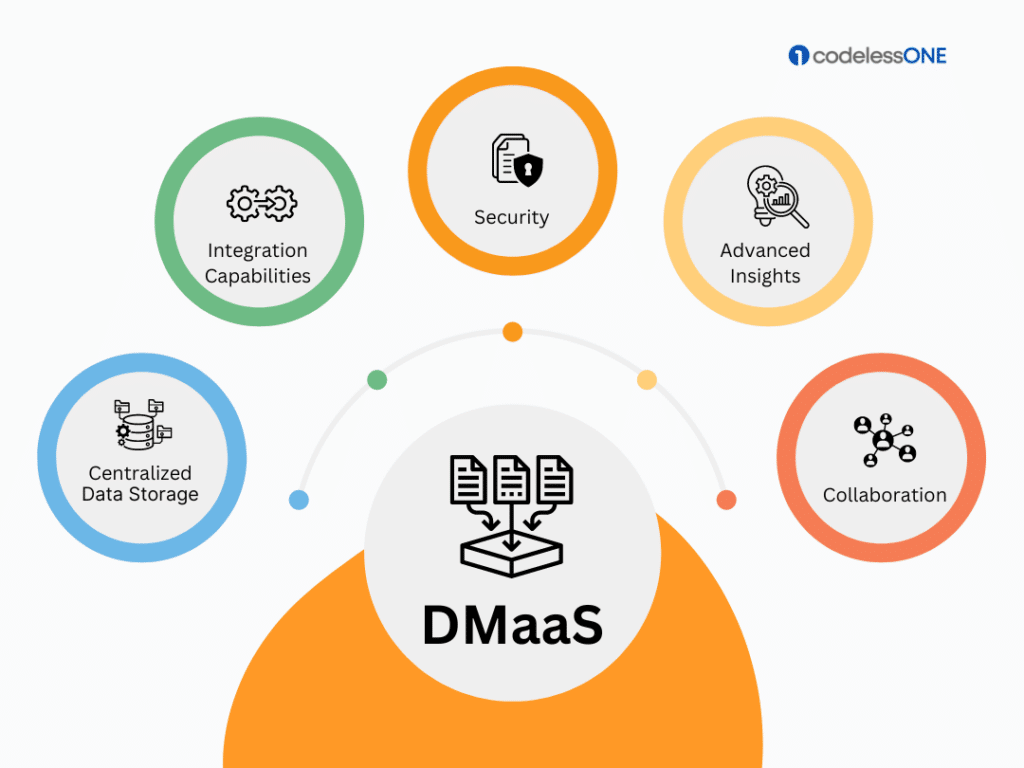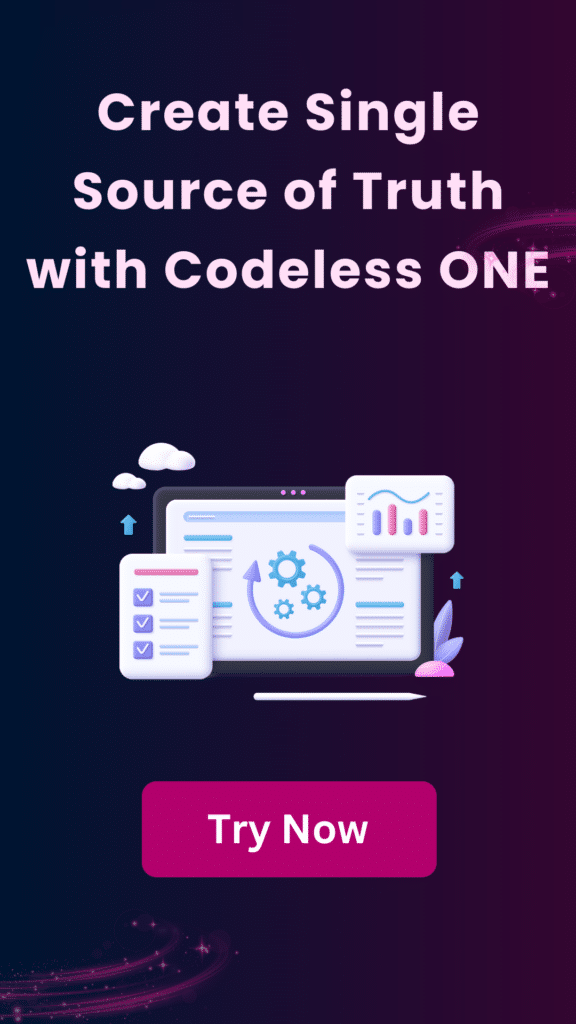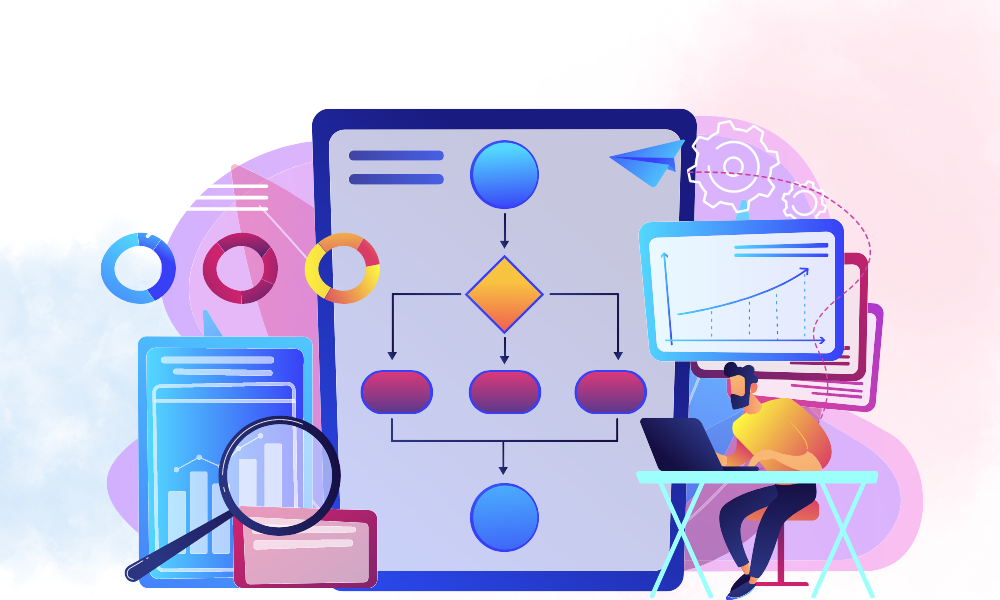Get to know about:
In the modern business landscape, data silos can be a significant barrier to efficiency and innovation. Data Management as a Service (DMaaS) offers a solution to this pervasive issue.
Data silos are isolated pockets of data, often confined within specific departments or applications, can hinder collaboration, reduce data quality, and limit the insights that can be derived from a comprehensive data set.
Let’s explore how DMaaS can help break down data silos and create a more unified, accessible, and efficient data environment.
Understanding Data Silos
Data silos happen when data is stored in separate systems or departments, making it difficult for different parts of an organization to access and utilize the information. These silos can arise due to various reasons:
- Legacy Systems: Older systems may not integrate well with modern technology, leading to isolated data stores.
- Departmental Boundaries: Different departments may use distinct software or processes, causing data to be confined within those areas.
- Mergers and Acquisitions: When companies merge, their disparate data systems may not be integrated effectively, resulting in silos.
How DMaaS Addresses Data Silos
DMaaS provides a cloud-based solution to the problem of data silos, offering several key features and benefits:
1. Centralized Data Storage
- Unified Data Repository: DMaaS platforms typically offer a centralized data repository where data from various sources can be aggregated. This removes the need for multiple storage systems and ensures that all data is accessible from single point.
- Scalability: As organizations grow, their data needs increase. DMaaS solutions are designed to scale seamlessly, accommodating the influx of data without requiring significant infrastructure changes.
2. Integration Capabilities
- Seamless Integration: DMaaS solutions often come with robust integration capabilities, allowing data from different systems and applications to be easily consolidated. This includes integrating with both legacy systems and modern applications.
- APIs and Connectors: Many DMaaS providers offer APIs and pre-built connectors that facilitate the smooth transfer of data between systems, reducing the complexity of integration efforts.
3. Data Governance and Security
- Consistent Data Policies: With a centralized data management approach, organizations can enforce consistent data governance policies across all departments. This ensures data quality, compliance, and security.
- Enhanced Security Measures: DMaaS providers implement advanced security protocols, including encryption, access controls, and regular audits, to safegaurd sensitive data and prevent unauthorized access.
4. Advanced Analytics and Insights
- Comprehensive Analytics: By breaking down data silos, DMaaS enables organizations to perform comprehensive analytics on a unified data set. This can lead to better insights and more informed decision-making.
- Real-Time Data Access: DMaaS solutions often provide real-time data access and analytics capabilities, allowing organizations to respond quickly to changing business conditions and opportunities.
5. Collaboration and Accessibility
- Improved Collaboration: With data accessible from a single platform, teams across different departments can collaborate more effectively. This enhances communication and ensures that everyone has access to the same information.
- Remote Access: Cloud-based DMaaS solutions enable remote access to data, supporting flexible work arrangements and ensuring that employees can access critical information from anywhere.

Case Study: Codeless ONE for data management
Consider a retail company struggling with data silos across its sales, marketing, and supply chain departments. Each department uses different software to manage its data, resulting in fragmented insights and inefficiencies.
By having a single source of data, the company can:
- Aggregate Sales Data: Centralize sales data from various channels (e.g., online, in-store) to gain a comprehensive view of customer behavior.
- Integrate Marketing Campaigns: Combine marketing data with sales data to measure campaign effectiveness and optimize marketing strategies.
- Streamline Supply Chain: Consolidate supply chain data to improve management of inventories, reduce costs, and enhance customer satisfaction.
With Codeless ONE, the company achieves a unified data environment, leading to better collaboration, more accurate insights, and improved operational efficiency.
Conclusion
Data Management as a Service (DMaaS) offers a powerful solution to the pervasive problem of data silos. By providing centralized data storage, seamless integration, robust security, advanced analytics, and enhanced collaboration, DMaaS enables organizations to break down data silos and build a more unified and efficient data environment.
As businesses continue to rely on large amounts of data, adopting DMaaS can be a crucial step toward maximizing the value of their data and driving innovation.
Unlock the Power of Your Data
Consolidate all your data sources into a unified platform for easy access and management.












